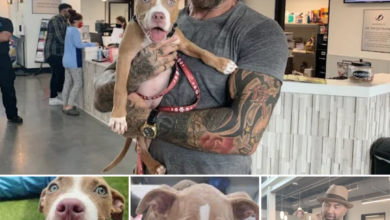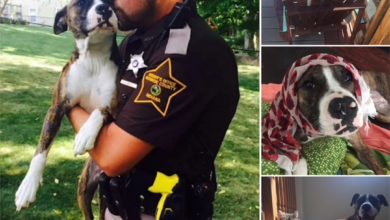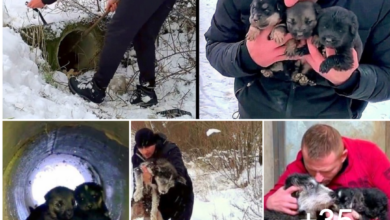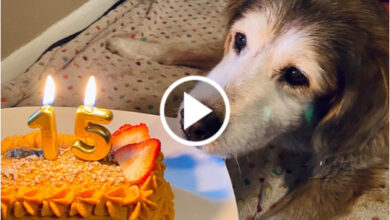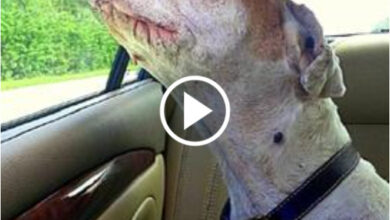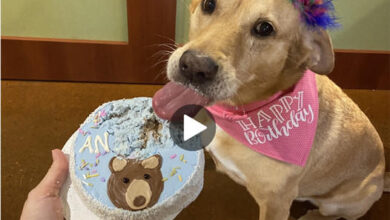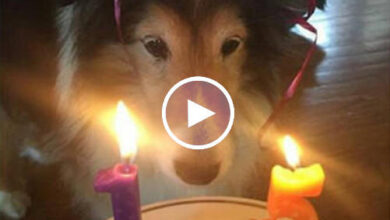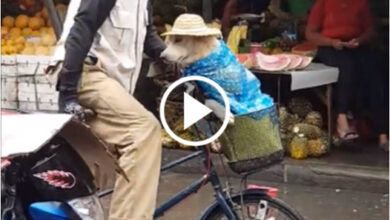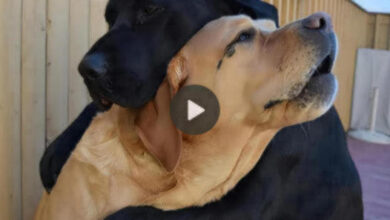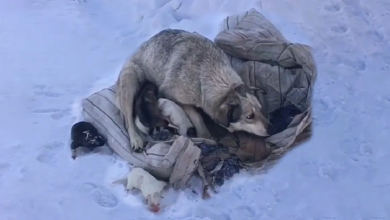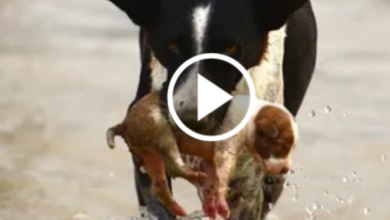How To Take Care When Dogs Pregnant
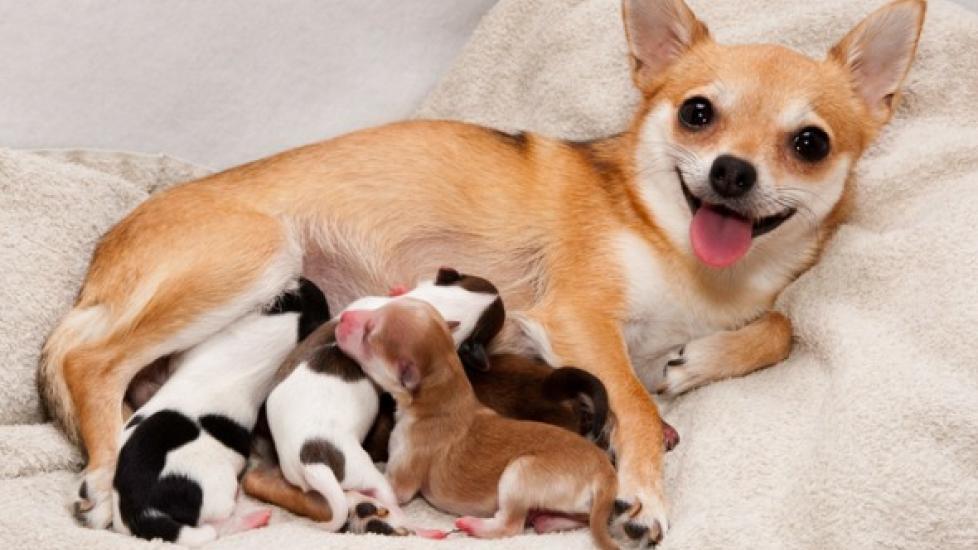
If you’re a dog owner and your furry friend is pregnant, it’s important to take extra precautions to ensure her health and the health of her puppies. As an active participant in your dogs pregnant journey, you have a responsibility to provide proper nutrition, exercise, and veterinary care, and prepare for delivery. During this time, your dog will require special attention and care from you.
Understanding the basics of dog pregnancy is crucial in providing adequate care. Dog pregnancies typically last between 63-65 days and can result in litters ranging from one to over ten puppies. During this time, your dog will experience physical changes such as weight gain, enlarged nipples, and even morning sickness.
Understanding these changes can help you identify any potential issues early on and seek medical attention if necessary. By taking proactive steps towards providing proper care during your dog’s pregnancy journey, you can ensure that both she and her puppies are healthy throughout the process.
Understanding Dog Pregnancy
If you’re expecting a litter of puppies, it’s important to understand the signs and stages of dog pregnancy. Dogs are pregnant for an average of 63 days or nine weeks, but this can vary depending on breed and individual factors.
During the first few weeks of pregnancy, there may not be any obvious signs that your dog is pregnant. However, as the gestation period progresses, you may notice some physical changes in your dog. One common sign of pregnancy is a swollen belly or enlarged nipples. Your dog may also experience morning sickness or loss of appetite during this time.
Another indication that your dog is pregnant is a change in her behavior. She may become more affectionate and seek out more attention from you.
Proper nutrition during pregnancy is crucial to ensure the health of both the mother and her puppies. As such, it’s essential to provide your pregnant dog with high-quality food that meets her specific nutritional needs. This includes foods that are rich in protein, vitamins, and minerals.
Additionally, make sure that your dog has access to plenty of fresh water at all times to keep her hydrated throughout her pregnancy.
Nutrition During Pregnancy
You’ll want to make sure your furry friend is getting all the necessary nutrients during her pregnancy. Proper nutrition is essential for a healthy pregnancy and healthy puppies. A well-balanced diet should consist of protein, carbohydrates, fats, vitamins, and minerals.
The importance of supplements can’t be overstated during dog pregnancy. Supplements like folic acid, calcium, and iron are vital to ensure the proper development of the fetus. Talk to your veterinarian about which supplements are appropriate for your dog’s specific needs.
Balanced diet options include high-quality puppy food or homemade meals that meet all nutritional requirements. Consult with your veterinarian or a canine nutritionist to create a dietary plan that works best for your pregnant dog. Remember to monitor her weight gain and adjust her diet accordingly as she progresses through her pregnancy.
As you prepare for the arrival of your new litter, don’t forget about exercise and physical activity! Regular exercise can help keep both mom and pups healthy throughout the pregnancy. In the next section, we’ll discuss safe ways to keep your pregnant pooch active without putting any unnecessary strain on her body.
Exercise and Physical Activity
To keep your pregnant pooch healthy, it’s important to incorporate regular exercise into her routine. Did you know that, according to a study published in the Journal of Animal Science, pregnant dogs who exercised had shorter labor times and produced larger litters compared to those who were sedentary?
While it may seem counterintuitive, low-impact workouts like walking or swimming can help maintain muscle tone and prevent excessive weight gain during pregnancy. In addition to exercise, resting periods are equally important for your pregnant dog. Make sure she has access to a comfortable space where she can relax and rest as needed throughout the day.
Be mindful of any signs of fatigue or discomfort during physical activity – if your dog seems tired or is panting heavily, it may be time for a break. As with any aspect of caring for your pregnant dog, consulting with a veterinarian is crucial for ensuring optimal health outcomes. From monitoring nutritional needs to providing guidance on appropriate exercise levels, your vet can offer invaluable support throughout this exciting (but also challenging) time.
Veterinary Care
Make sure your furry friend receives proper veterinary care during her pregnancy to ensure the best possible outcome for both her and her puppies. One of the most important things you can do is keep up with routine checkups, as these will help detect any potential problems early on. Your veterinarian will monitor your dog’s health and provide guidance on nutrition, exercise, and other aspects of care.
Another crucial aspect of veterinary care during pregnancy is vaccination. Vaccines protect against diseases that can be dangerous for both mothers and puppies. It’s important to make sure your dog is up-to-date on all necessary vaccinations before she becomes pregnant. If you’re unsure about which vaccines are recommended or when they should be administered, don’t hesitate to ask your veterinarian.
In addition to regular checkups and vaccinations, your veterinarian may recommend additional tests or procedures based on your dog’s individual needs. This might include bloodwork, ultrasounds, or other diagnostic tests.
By working closely with your vet throughout the pregnancy, you’ll have the peace of mind that comes with knowing you’re doing everything possible to ensure a healthy litter of puppies. As you move into preparing for delivery, it’s important to continue following your vet’s recommendations and staying in close communication with them about any concerns or questions that arise.
Preparing for Delivery
Get ready for the exciting and nerve-wracking moment when your furry friend is about to give birth to her precious puppies. One of the most important things you can do is choose a midwife for your dog. This person should be experienced in canine birthing, have access to emergency veterinary care, and be able to provide support throughout the entire process.
Once you’ve chosen a midwife, it’s time to prepare a birth plan. This plan should include details on where the birth will take place, what supplies you’ll need (such as towels and heating pads), and who will be present during delivery. It’s also important to have a backup plan in case something goes wrong.
Remember that every dog is different, so it’s important to work closely with your midwife and veterinarian throughout the entire process. They can help you make any necessary adjustments to your plans based on your dog’s individual needs. With proper preparation and support, you can help ensure a safe and successful delivery for both your furry friend and her precious puppies.
As you prepare for delivery, keep in mind that postpartum care is just as important as prenatal care. In the next section, we’ll discuss how to properly care for both the mother and her new puppies after they’re born.
Postpartum Care
As you enter the postpartum phase, it’s crucial to prioritize the health and well-being of both the mother and puppies. Keep a close eye on them, monitoring for any signs of complications that may arise during this time.
Additionally, start preparing for weaning by gradually introducing solid foods to the puppies’ diet and slowly reducing their dependence on their mother’s milk.
Remember, proper postpartum care is vital in ensuring healthy outcomes for your furry family members.
Caring for the mother and puppies
Ensuring the health and safety of the mother and her litter is crucial during their postnatal period. As a responsible pet owner, you should provide them with a comfortable and clean environment.
Here are some tips to help you care for your dog and her puppies:
- Socialization needs: Puppies need early socialization to become well-adjusted dogs. Expose them to different people, sights, sounds, and experiences to help them develop into confident adults.
- Bonding opportunities: Encourage bonding between the mother and her pups by allowing uninterrupted time for nursing and cuddling. This will help strengthen their bond and promote healthy development.
- Nutritious diet: Provide your lactating dog with high-quality puppy food that meets her nutritional needs. Make sure she has access to fresh water at all times.
It’s important to monitor your dog’s health closely during this period as complications can arise quickly.
In the next section, we’ll discuss how to identify potential issues so you can take action promptly if needed.
Monitoring for complications
Monitoring your dog’s health during the postnatal period is crucial in identifying and addressing potential complications quickly. Complications monitoring involves keeping a close eye on your dog’s behavior, appetite, and physical condition. You should also watch for warning signs such as fever, lethargy, loss of appetite, or discharge from the vulva.
If you notice any of these symptoms or anything else that seems unusual, contact your veterinarian immediately. They can help you determine if there’s a problem and provide appropriate treatment. Remember that early detection and intervention are key to ensuring the health of both mother and puppies.
As you continue to monitor your dog’s health during this time, it’s important to start preparing for weaning. This process involves gradually introducing solid food to the puppies while reducing their dependence on their mother’s milk.
By taking care to monitor for complications and prepare for weaning, you can help ensure a healthy outcome for both mother and puppies.
Preparing for weaning
Now that you’ve been monitoring your dogs pregnancy for any possible complications, it’s time to start preparing for the next stage: weaning.
Weaning preparation involves making sure that both the mother and her puppies are healthy and ready for the lactation process. To ensure successful lactation management, it’s important to provide a clean, comfortable, and warm environment for the mother and her puppies.
You should also make sure that the mother has access to a balanced diet rich in protein, vitamins, and minerals. This’ll help her produce sufficient milk for her litter. It’s also essential to monitor the puppies’ weight gain during this phase as they grow rapidly in size.
In case of slow weight gain or any other issues concerning their health, consult your veterinarian immediately. Taking care of a pregnant dog requires attention not only during pregnancy but also after birth.
Proper weaning preparation and lactation management are crucial components of ensuring healthy development for both the mother and her puppies. By following these guidelines closely, you can ensure a smooth transition from nursing to solid food while keeping everyone safe and healthy throughout the process.
Conclusion
Congratulations! Your furry friend is pregnant, and you’re probably excited to see her new litter of puppies.
But before you start planning a puppy shower, it’s important to understand the responsibilities that come with caring for a pregnant dog. During pregnancy, your dog will require extra care and attention.
This includes proper nutrition, exercise, veterinary check-ups, and preparing for delivery. Remember that just like human pregnancies, each dog’s pregnancy is unique and requires individualized care.
As the saying goes, “An ounce of prevention is worth a pound of cure.”By taking proactive steps to ensure your dog’s health during pregnancy and postpartum recovery, you can help her have a successful delivery and raise healthy puppies.
So take the time to educate yourself on what it takes to properly care for dogs pregnant – both she and her pups will thank you in the end.
Read more:


